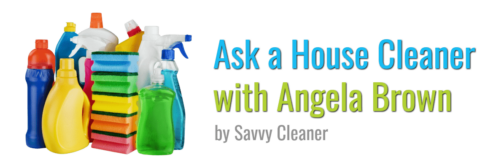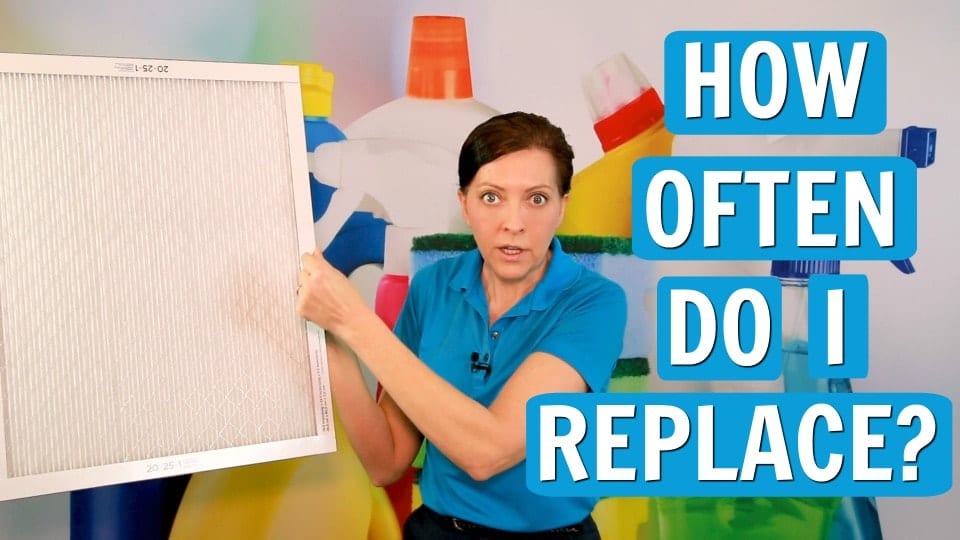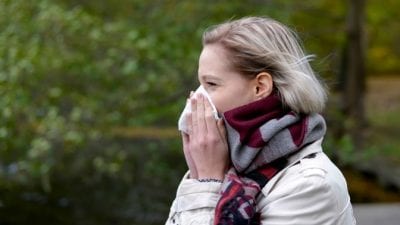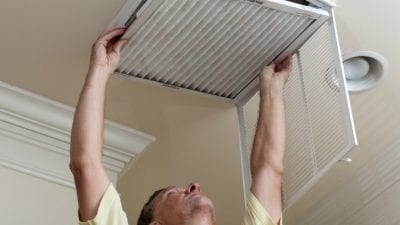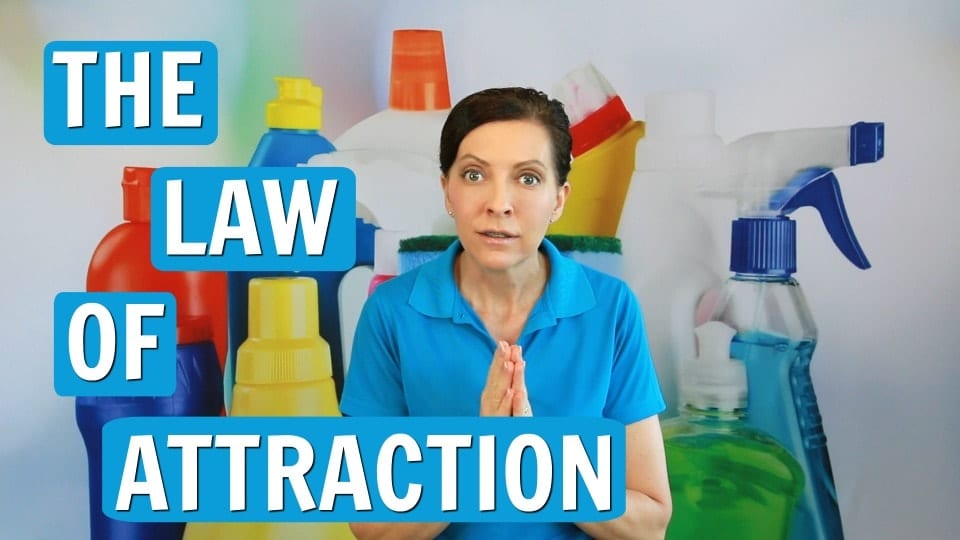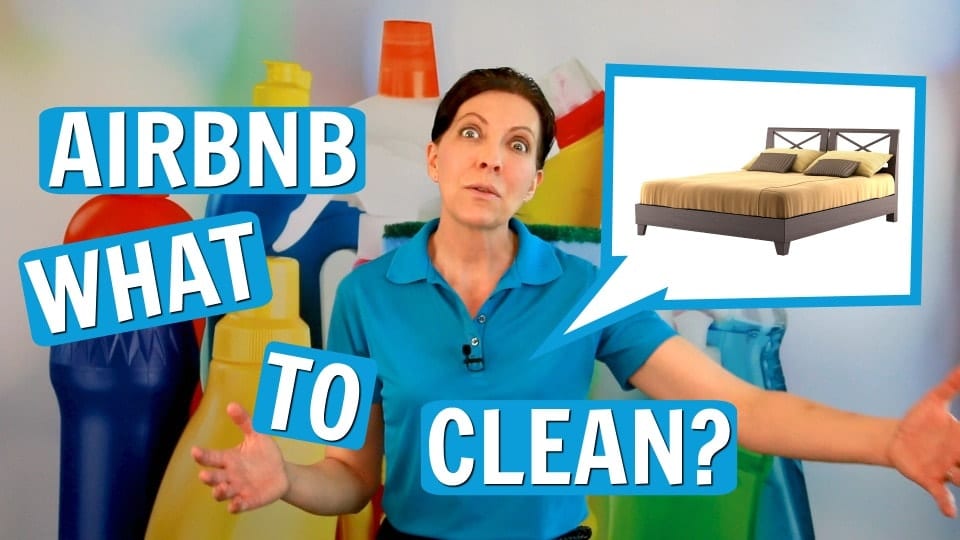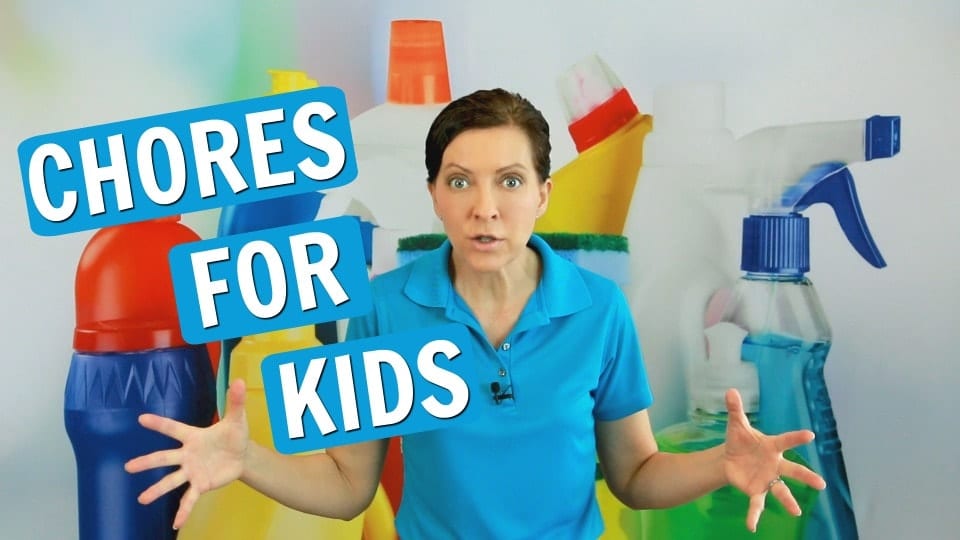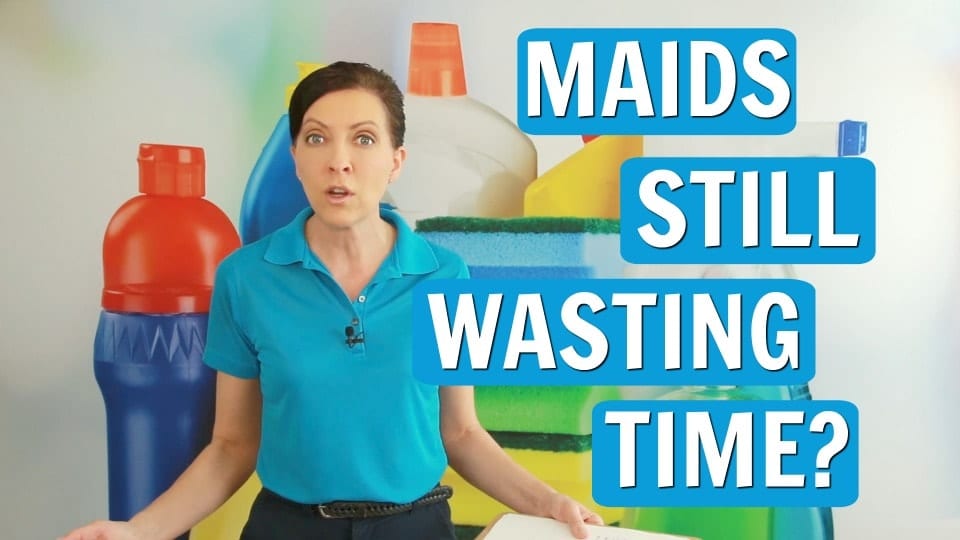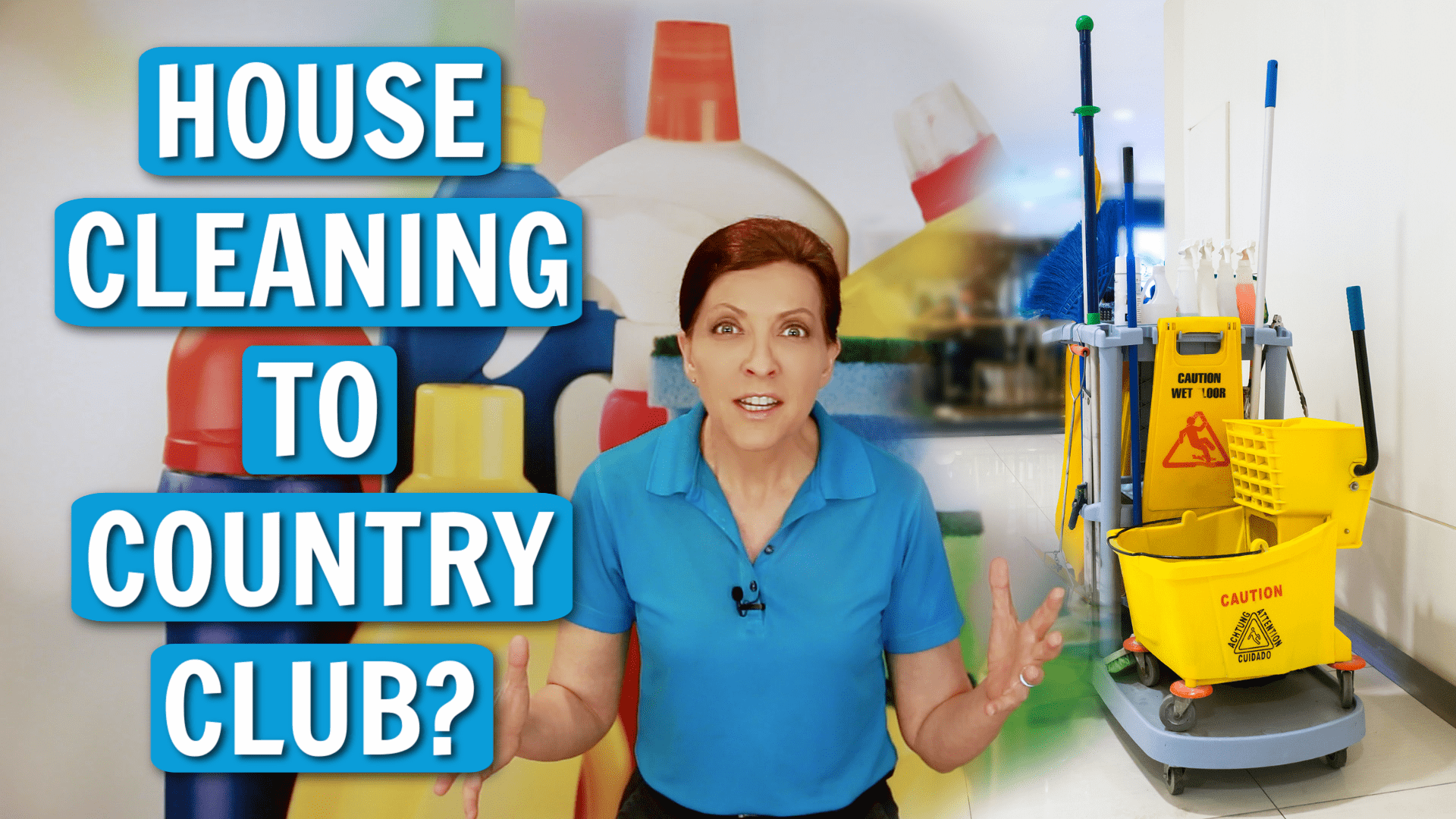[vc_row css=”.vc_custom_1539857563711{margin: 60px !important;}”][vc_column width=”2/3″][vc_column_text]How often should you change your air filters? Ever wonder that? Clean air filters in your HVAC (Heating Ventilation and Air Conditioning) means greater efficiency. It also means healthy lungs when you’re not breathing bacteria from sickness and airborne pathogens.
We Ask a House Cleaner about the types of air filters and should we buy fiberglass, HEPA or pleated cloth filters.
Angela Brown, The House Cleaning Guru doesn’t talk about MERV rating. (You’ll find that in the show notes.) But she does give tips on dust, dust mites, allergens and mold.
Today’s sponsors are HouseCleaning360, Savvy Cleaner Training and My Cleaning Connection.
Listen: How Often Should You Change Air Filters?
Watch: How Often Should You Change Air Filters?

Question: How Often Should You Change Air Filters?
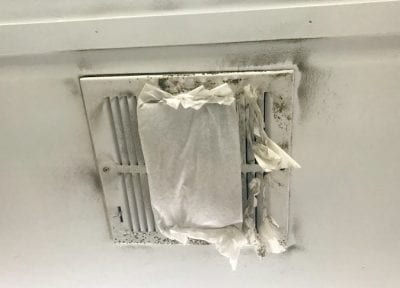
How often should I change my air filters in my house? That’s an excellent question and we’re going to talk about that today.
Let’s start by agreeing that all air filters are not created equal. We’re going to cover a couple of air conditioning filters. And then you can decide which one is going to be best for you. And how often you’re going to need to change those based on your lifestyle.

Answer: Where Do You Find Air Filters in Your House?
Most modern homes have an HVAC unit or two. HVAC stands for Heating Ventilation and Air Conditioning. It’s the central air and heat that comes out of the vents. If you open the vents you will find the air filters.
Known Household Allergens Trapped by Air Filters
Air filters trap dust, dust mites, pet dander, mold, and bacteria. When the temperature fan kicks on, hot or cold air circulates through your house.
How Do Air Filters Work?
Let’s say that somebody in your house is coughing and sneezing when the air kicks on it circulate that sickness through your house.
An air filter traps as much of that as possible so your body doesn’t have to filter it out. So, the cleaner your air filters, the less work your HVAC unit has to do, and the less work your nose, mouth, and lungs have to do to filter the air you breathe.
MERV Ratings – Which is Best for Air Filters?
 MERV is the rating for air filters and it stands for Minimum Efficiency Reporting Value. And it’s based on a scale of 1 to 20. 1 is bad, 20 is the best meaning it removes the most particles of gunk from your indoor air.
MERV is the rating for air filters and it stands for Minimum Efficiency Reporting Value. And it’s based on a scale of 1 to 20. 1 is bad, 20 is the best meaning it removes the most particles of gunk from your indoor air.
I know you might be thinking that your furnace should be 20, right? Not so fast.
The temperature in your home creates a comfortable environment. And if the MERV rating on your furnace is too high, your HVAC unit has to work too hard which creates inconsistencies in the airflow.
Every household unit has a recommended MERV rating. Don’t use a filter higher than that rating or you will force your fan to work harder.
How Do You Choose A “Good” Air Filter?
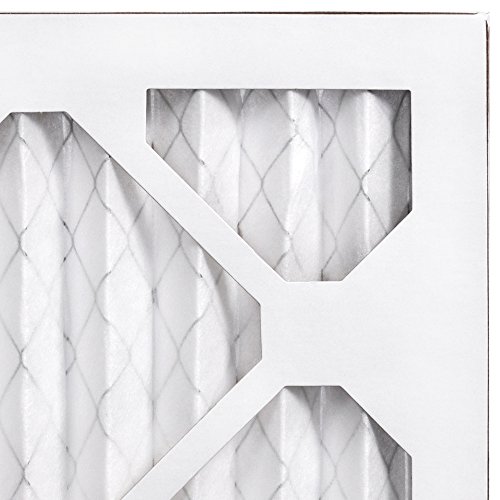 The MERV ratings are grouped together by the size of stuff they filter and recommended use.
The MERV ratings are grouped together by the size of stuff they filter and recommended use.
- MERV 1 – 4: Construction debris in new homes. Pollen, dust mites, dead bug debris, sanding dust, carpet fibers
- MERV 5 – 8: Standard home quality (high efficiency, no allergies.)
For People With Pets and Allergies
- MERV 9 – 12: Above standard quality for a home (people with pets and Merv_Rating_Chart allergies)
- MERV 13 – 16: Hospital level of air quality
Science Grade – Overkill for Most Homes
- MERV 17 – 20: Used for Science Labs
What Are Air Filters Made Of?
 Air filters, for the most part, is made of one or more of the following four fabrics:
Air filters, for the most part, is made of one or more of the following four fabrics:
Fiberglass – (MERV 1 – 4) The cheapest air filters you’ll find are spun fiberglass and usually in the 2 to 4 MERV rating range.
Washable Fabric – (MERV 1 – 8) Some people buy these because they “last longer” than disposable filters. But the MERV rating is usually not higher than an 8. And they are notorious for developing bacteria and fungus. If breathing clean air is paramount to your health (and it is, choose disposable filters and replace them often.)
Pleated Fabric – (MERV 6 – 13) These are the next cheapest filters made of polyester or cotton paper sheets. They are disposable and among the most air filters used for homes.
HEPA (High-Efficiency Particulate Air) (MERV 17-20) You have to have a furnace rated for HEPA in order to use HEPA filters. Because they are so thick, typical HVAC units can’t push the airflow through. them.
How Often Should You Replace Air Filters?
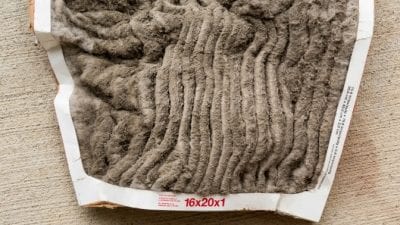 Every 6 Months – Busy professional, never home, no pets, set AC/Heat Fan on schedule
Every 6 Months – Busy professional, never home, no pets, set AC/Heat Fan on schedule
Every 3 months – Families, doors opening, and closing, people coming and going. Vacation rentals, Air B&B, set AC/Heat Fan on schedule
Every 2 months – Families with one pet. AC/Heat Fan continual use = 24/7
Every 1 month – Families with 2+ pets, AC/Heat Fan continual use = 24/7
These rules are not set in stone, but a general guideline using a quality air filter.
How Do You Install Air Filters in Your Home?
When you open the HVAC vent you will see an existing air filter inside. The air filter has the dimension printed on it (ex: 14 x 20 x 1 or something like that.) You will need to go through the entire house and make notes of each room and the size of the air filter in that room.
A single house may have several different sizes of air filters.
Each air filter encasing has an arrow. The arrow points the direction to position the air filter in the vent.
House Cleaners Upsell Change Service for Air Filters
If you’re a professional house cleaner, you might offer to change the air filters in your customer’s houses. They order them on Amazon and have them drop shipped and waiting for you. Then on a schedule, you change them so they don’t have to think about it.
Changing the filters on a schedule will also make your dusting job easier since clean filters will trap more dust.
Other Ways to Keep Your Indoor Air Quality Clean
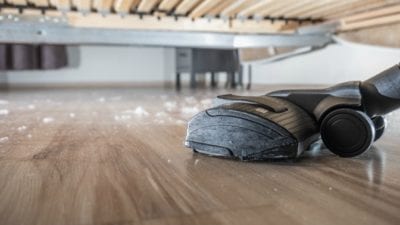 House cleaning is a superb way to improve your indoor air quality. Along with regular cleaning comes dusting and then vacuuming.
House cleaning is a superb way to improve your indoor air quality. Along with regular cleaning comes dusting and then vacuuming.
Regular vacuuming will pick up hair, dust, pet dander, dead bugs, and other things that you’ll end up breathing if not maintained.
Where You Live Affects the Indoor Air Quality
 Depending on where you live, you may want to close your windows to help maintain the quality of air in your home.
Depending on where you live, you may want to close your windows to help maintain the quality of air in your home.
Areas with coastlines have salt and sand that blows in off the ocean leaving a gritty film all over the furniture and embedded in your carpets.
The western United States like Oregon, Utah, and Nevada have dust storms that can coat your house in seconds with a layer of fine dust. And then your lungs and your HVAC filters have to work overtime to combat that.
The eastern United States, areas like Maryland, Virginia and the Carolinas have high levels of pollen. It is a green sticky matter that comes from trees, plants and the pollination of plants from bees. All these “natural” elements can wreak havoc on your sinuses and HVAC air filters.
Indoor Pets Contribute to Allergies
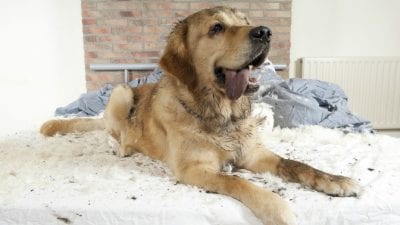 Indoor pets have pet dander and pet hair that scatter around your home as they run and play. And if they go outside, their fur picks up dust, dirt, pollen, sand, salt and whatever else is in the air.
Indoor pets have pet dander and pet hair that scatter around your home as they run and play. And if they go outside, their fur picks up dust, dirt, pollen, sand, salt and whatever else is in the air.
Your Personal Air Filtration System – Your Respiratory System
The American Lung Association has a slogan: “When you can’t breathe nothing else matters.” It’s catchy but it’s true. When you can’t breathe, you die.
The average person breathes twelve to twenty times per minute. As you inhale you breathe in the unseen particles floating around your house that haven’t been trapped in an air filter.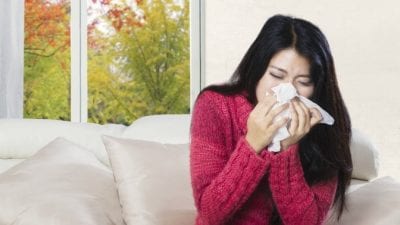
Diseases like Bronchitis, Asthma, Emphysema, and Pneumonia are all breathing, respiratory, lung-related ailments triggered by the air we breathe.
So, keeping the air that we breathe clean is paramount to our health and longevity. So how often do you clean your air filters?
Changing your air filters on a regular schedule will help you breathe better. When you breathe better you’ll sleep better. Cleaner air will reduce allergies which will clear your sinuses and eyes. Clean air filters will help your HVAC run more efficiently and improve the comfort levels in your home by balancing the temperature.
 Disclosure
Disclosure
During the shows we recommend services, sites, and products to help you improve your cleaning and grow your cleaning business. We have partnerships with these companies to provide you with discounts, and savings. By clicking on and buying from the links in the show notes, we may receive a commission which helps pay for the production costs of the show.
Support the show so we can continue to bring you free tips to improve your cleaning and help you grow your cleaning business. THANK YOU!
About the Show
Learn how the show came to be, interesting facts about the show host, and other frequently asked questions about the show.
Resources from This Episode
Buy Filters in Any Size – https://filterbuy.com/air-filter-sizes
How Often Do I Really Need to Change my HVAC air filter? – http://bit.ly/2oqHDaE
Construction – Builders Grade Air Filter – MERV 4 – http://amzn.to/2ENSci2
Standard (No Allergies, No Pets) MERV 8 – http://amzn.to/2BQ0iUH
Extra Care (Allergies and Pets) MERV 9-12 – http://amzn.to/2EUhfAc
HEPA (Hospital Quality) 13-16 – http://amzn.to/2CI4aEc
Permissions To Share
You Have Our Permission To Share This Episode
Show Sponsor
Savvy Cleaner Training – House Cleaner Training and Certification
HouseCleaning360 – Referral database of the world’s most prominent home service providers and the homeowners they serve.
My Cleaning Connection – Your hub for all things cleaning.o[/vc_column_text][/vc_column][vc_column width=”1/3″][vc_row_inner][vc_column_inner][vc_wp_text]
MERV 4
Construction
New Homes, General Purpose
[/vc_wp_text][/vc_column_inner][/vc_row_inner][vc_wp_text]
MERV 8
Standard Home Use
No Allergies, No Pets
[/vc_wp_text][vc_wp_text]
MERV 9-12
Advanced Home
Allergies, Pets
[/vc_wp_text][vc_wp_text]
MERV 13-16
Hospital Grade
[/vc_wp_text][product_category per_page=”20″ columns=”1″ orderby=”rand” order=”DESC” category=”air-filters”][/vc_column][/vc_row]
